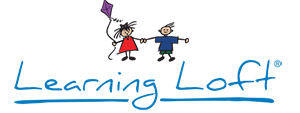3 Activities That Help Deaf Children Learn
Posted on September 02 2015
3 Activities That Help Deaf Children Learn
Submitted by Heather Jensen, an Audiologist and Clinical Assistant Professor for Utah state University.
When it comes to education, deaf children are faced with unique challenges. At the same time, however, we've seen families, teachers, and children overcome difficulties and find creative ways to learn, to the point where deaf children are every bit as knowledgeable and academically developed as their peers. Here are 3 simple activities we recommend for young children at home or at school to prepare their minds for a lifetime of learning.
1. Memory Games
Knowledge without memory does your child little good. Deaf children have an exceptionally large amount of terms and ideas to memorize, from colors to math-related words, as they will not have grown-ups hearing them over and over. In order to develop memorization, particularly your child's working memory (which allows them to more easily learn things the first time around), your child needs to practice. Memory games, such as concentration, are a fun and effective way to work on your child's memory.
Memory games can be especially helpful in laying the groundwork for basic counting, addition, and subtraction and preparing children to grasp bigger mathematic concepts later on. Another important use of memory games is vocabulary acquisition. Deaf children are not necessarily exposed to some words frequently enough to easily commit them to memory, which makes techniques such as using flashcards extremely useful.
2. Puzzles
Many of the best toys for children of all ages revolve around puzzles and patterns. Puzzles help develop physical skills and different ways of thinking. Coordination, spatial awareness, and problem-solving are all developed while working on puzzles and help pave the way for more complicated and specific concepts down the road. One of the most popular types of puzzles is the jigsaw puzzle, as children are given the end goal of a completed picture. When your child is ready, a jigsaw puzzle can also be a great way to teach them to cooperate and be patient with others, with or without direct communication.
3. Picture Books
Once a child is able to really take off with reading, a whole world of information and entertainment opens up to them. Though it may be frustrating, confusing, and slow-going at times, reading can ultimately be very liberating for deaf children. As parents and teachers, it's important that we never lose sight of this as we try to teach our children to not only understand what's on the page, but also come to love the process. But how do we get to that point?
For any child starting their study of the written language, visuals are the key to understanding; this is why picture books are the format of choice for beginners. The pictures are especially vital to deaf children who don't already have aural points of reference. Still, the learning process is very similar for all young readers as they learn to associate images with words on a page and accompanying sounds or signs. To start, choose a book that matches your child's interests to help generate initial enthusiasm and retain attention. As you let your child flip through the book, stop and point to images and words, drawing connections between the pictures and the text. You should also give them the sign for the word. If possible, take it a step further and bring in a tangible, real-world example of the word. A pencil, for example, could be shown through the picture, text, sign, and the real thing.
Repeat and Enjoy
With any of these activities, don't be afraid of repetition. If your child wants to play the same game or look at the same book over and over, let them. This is a perfectly natural way for a young child to learn, and they will understand more with every cycle. And with every new concept that your child grasps comes more opportunities for bigger and more complex ideas, as well as greater satisfaction in education. We at Utah State University wish you and your child all the best on your educational journey!
Heather Jensen received her Doctorate of Audiology from Arizona School of Health Sciences in 2004. She has been an adviser for the student academy of audiology organization at USU for 11 years. Before coming to USU, she owned her own private practice, but decided she wanted to give back to the field of audiology by teaching students. When she's not working she spends time with her four children, she also enjoys doing hearing related humanitarian missions.

0 comments